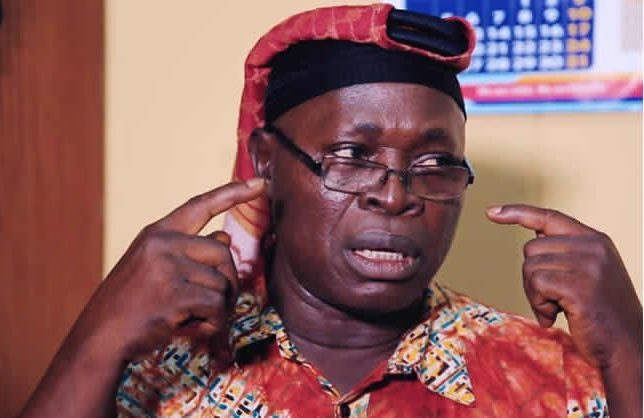The Nigeria Labour Congress (NLC) has urged the Federal Government to adopt a National Employment Plan that would engender decent work in the country.
NLC President, Mr Ayuba Wabba, made the call on at a Decent Work Round-Table discussion, to mark the 2021 World Day for Decent Work (WDDW).
The theme for the 2021 WDDW celebration is, “The Effect of the COVID-19 Pandemic on Health, Employment, Income and Gender Equality are more entrenched and catastrophic than before.’’
Wabba said that the national employment plan was imperative to address the issue of peace and stability in the country.
He said that government at all levels should take serious action and put in place mechanisms that would engender decent work in Nigeria, noting that 70 per cent of Nigerians earn their livelihood in the informal sector.
The labour leader also identified casualisation of workers as a major challenge, stressing that seeking employment in the country has become perverse.
“In fact, permanent jobs on daily basis are converted to casuals. Causals means those workers that have no social protection, no rights and in most cases most labour standards are undermined.
“I must use this opportunity to call on our government at all levels to adopt a national employment plan and I think decent employment is a recipe for addressing the issue of peace and stability.
“We have many of our youth, both trained and untrained, looking for jobs and the jobs are not there.
“These youths can certainly be a tools in the hands of people who are manipulative and this can be very dangerous to the society.
“As a country, unemployment must come to the centre stage in our recovery for COVID-19 plan,’’ he said.
Wabba said that Nigeria must begin to engage the process of achieving Sustainable Development Goal 8.7, which is provision of decent jobs for the teeming youth by 2030.
According to the NLC President, this will further reduce informality in our system by more than half.
“We need jobs that respect maximum working hours and jobs that can provide a decent minimum wage.
“Today, we know that the 30,000 minimum wage has been reduced to virtually nothing due to external effects of inflation in our system.
“We also need jobs that respect fundamental labour status, we need jobs that are sustainable, ’’he added
Also, the International Labour Organisation (ILO) Country Director to Nigeria, Ms Vanessa Phala, called on trade unions to stand for decent work.
Phala said that decent work must be at the centre of government action to bring back economic growth and building of a new global economy that puts people first.
She further said that recent statistics from the International Trade Union Congress (ITUC) indicated that over 200 million jobs were lost to COVID-19, adding that another 100 million workers were at risk of job losses.
“In Nigeria, the COVID-19 pandemic has deepened the crises in certain sectors of the economy such as the banking, manufacturing, services, health, education, among others.
“This is with unprecedented high level of unemployment at over 30 per cent and over 70 per cent of the total workforce in the informal economy,’’ she said.
Sen. Chris Ngige, Minister of Labour and Employment, said that President Muhammadu Buhari administration was committed to promoting decent work values not withstanding some challenges in the country.
Ngige, represented by the Permanent Secretary of the ministry, Dr Yerima-Peter Tafia, said that there was global economy slump into recession due to the COVID-19 pandemic.
He said this had disrupted trade flow, shut-down in domestic and international flights and restriction in intercity travels and that Nigeria was not insulated from it.
“Nigerian economy appears to have weathered the economic storm that emanated from twin shocks of COVID-19 and low international oil prices.
“We must all as critical stakeholders now redouble our collective efforts to ensure continued national economic growth and avoid a reversal into recession.
“Rising insecurity and unemployment continue to constitute key risks to the Nigerian economy as the investment climate is pressured and underpinned by heightened insecurity across the country.
“This is not unlinked with the increasing number of unemployed youths seeking means of fulfilling their aspirations in life.
“Decent Work is needed now more than ever before, to engender a harmonious and productive working environment, wealth generation and strengthen our fragile economic growth, ’’he said.(NAN)



